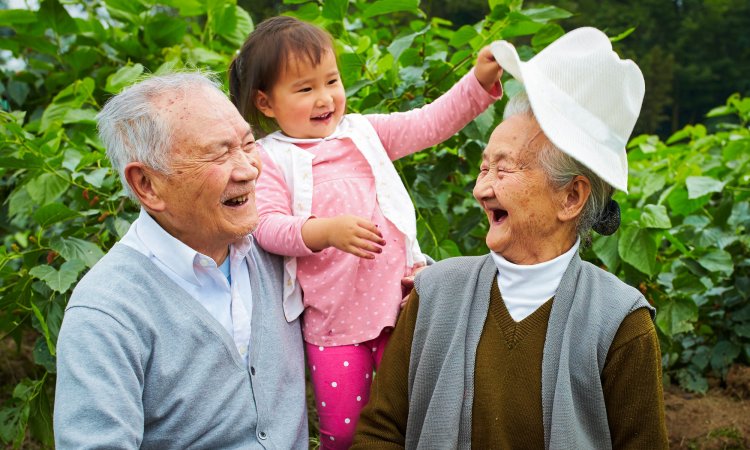IT’S THE ONE THING
THAT EVERYONE STOPS AND REACHES
whether it’s family
whether it’s work
whether it’s downtime
whether it’s personal as personal can be
H A P P I N E S S

but mere S-E-N-S-E. . .
 Here’s a complete list of 100+ hacks we can use to boost important “happiness chemicals” such as dopamine, oxytocin, serotonin, and endorphins. These are the building blocks to living a happier and healthier life. Which are your favorites?
Here’s a complete list of 100+ hacks we can use to boost important “happiness chemicals” such as dopamine, oxytocin, serotonin, and endorphins. These are the building blocks to living a happier and healthier life. Which are your favorites?
Dopamine (reward)
Dopamine is often associated with reward-seeking and goal-oriented behavior.
-
- Complete a small and easy task (making your bed, washing the dishes, send an email).
-
- Celebrate a small win (something you accomplished recently).
-
- Eat a healthy but enjoyable snack (in moderation).
-
- Complete a small puzzle or game.
-
- Reflect on a positive memory you had recently, however small it may be.
-
- Finish reading a chapter of a book.
-
- Clean one thing or go on a tidying marathon one afternoon.
-
- Practice a power-pose to boost your physical and mental confidence.
-
- Create a timeline for your goals to get a clearer vision of your future.
-
- Take a temporary break from a pleasurable habit (to reset your hedonic treadmill).
-
- Learn how to savor your positive experiences.
-
- Schedule something exciting in the future to look forward to (the power of anticipation).
-
- Buy yourself something nice, but recognize retail therapy is only a temporary fix.
-
- Take a break from social media, which can often lead to a “dopamine burnout” from easy likes and attention. Pay attention to your digital environment.
-
- Learn about a new and exciting topic, but don’t become an information junkie.
-
- Set a new goal for yourself (something realistic and attainable).
-
- Take personality tests or psychology quizzes to learn more about yourself.
-
- Make sure your diet includes important vitamins and minerals associated with dopamine production (especially iron, niacin, folate and vitamin B6).
-
- Put a fun twist on ordinary activities to make them more enjoyable.
-
- Find activities that put you into a state of “flow,” where you lose sense of time and become fully engaged.
-
- Consume more positive news – and share it with others!
-
- Complete a personal project or “passion project” that isn’t related to work or family.
-
- Identify a strength or “superpower” of yours.
-
- Recite positive affirmations that resonate with you and inspire you.
-
- Share an accomplishment of yours with someone who’d be proud of you.
-
- Play a video game you enjoy and you’re good at (in moderation).
- Cultivate a diverse range of interests and hobbies, so nothing ever gets stale.
Oxytocin (love/bonding)
Oxytocin is often associated with feelings of love, affection, and bonding.
-
- Give someone a long hug (or hug yourself).
-
- Play with a pet (especially a dog or cat).
-
- Play with kids.
-
- Cradle a baby.
-
- Give someone a genuine compliment.
-
- Wrap yourself in a comfy and warm blanket.
-
- Cuddle with a loved one (while in bed or watching TV).
-
- Volunteer for a cause that means something to you.
-
- Practice a loving-kindness meditation to cultivate good intentions toward everyone.
-
- Give or receive a massage or back rub.
-
- Spend romantic alone time with your partner.
-
- Embrace human touch, even in small ways such as a handshake or pat on the back.
-
- Prepare a meal together with someone you love.
-
- Collaborate on an art project with someone.
-
- Listen to someone who needs someone to vent to and provide emotional validation.
-
- Give a random gift or present to someone you care about.
-
- Tell someone you love them.
-
- Take a nice hot bath.
-
- Practice eye-gazing with a loved one.
-
- Empathize with someone who is less fortunate than you.
-
- Write a letter of appreciation for someone.
-
- Practice synchronized breathing or mirroring.
-
- Participate in a group music activity, such as a drum circle or choir.
-
- Use more “we”-language in your relationships.
-
- Reach out to a person you trust when you need support or someone to listen.
-
- Permit yourself to fall in love with someone and have a long-term relationship.
- Recognize your sense of oneness with everything.
Serotonin (happiness/mood)
Serotonin is often associated with mood regulation and happiness.
-
- Practice meditation, such as a simple breathing meditation.
-
- Go for a long walk.
-
- Spend more time outside nd learn to appreciate everyday nature.
-
- Sit in the sun and enjoy it (especially when boosting mental health in the winter).
-
- Pursue a creative hobby, such as painting, music, photography, or filmmaking.
-
- Listen to your favorite music, one of the most common ways we regulate our mood and emotions.
-
- Do more aerobic exercises like swimming, running, or cycling.
-
- Think kind thoughts about yourself to practice self-compassion.
-
- Practice a progressive muscle relaxation to relax both your body and mind.
-
- Go to a live event, festival, or concert.
-
- Engage in more “awe”-inspiring experiences, like star-gazing, going to a museum, or visiting the zoo.
-
- Identify one thing you are grateful for every day – make gratitude a daily mental habit.
-
- Write in a daily journal about your thoughts and feelings (or try one of these writing prompts for self-reflection).
-
- Maintain a consistent and healthy sleep schedule between 6-10 hours every night.
-
- Train your mind to be more positive. Try to minimize complaining and talking about problems too much.
-
- Drink green tea.
-
- Consume high protein foods that contain tryptophan such as salmon, turkey, eggs, and nuts (or take a supplement).
-
- Improve your body awareness through mindful stretching, Yoga, or Tai Chi.
-
- Consume healthy probiotics in your diet (yogurt, kombucha, sauerkraut, pickles, and fermented foods).
-
- Find opportunities to engage in healthy reflection.
-
- Have a genuine and meaningful conversation with someone (know the difference between small talk vs. big questions).
- Participate in a religious or spiritual ceremony.
Endorphins (energy/pain-killer)
Endorphins are often associated with stimulation, energy, and feelings of relief (pain-killers).
-
- Laugh a lot with friends.
-
- Watch a comedy movie or funny TV show.
-
- Go for a long run (also known as “runner’s high”).
-
- Have an intense workout at the gym.
-
- Engage in a competitive activity.
-
- Pursue extreme sports (surfing, biking, skateboarding).
-
- Eat dark chocolate.
-
- Engage in positive thrill-seeking (like amusement parks, rollercoasters, or skydiving).
-
- Dance to fast and upbeat music.
-
- Take a cold shower to shock your body and boost your adrenaline.
-
- Practice improvisation exercises where you can engage in spontaneous creative thinking and playful risk-taking.
-
- Do something you’ve always wanted to, but you’re nervous to try. Learn how to channel anxiety into motivation.
-
- Eat really spicy foods.
-
- Engage in a healthy but lively debate about a topic you care a lot about.
-
- Approach new people you want to meet, even if it’s a tiny 10 second relationship.
-
- Go to a fun and wild party or night club.
-
- Do a quick high-intensity workout (cycle through jumping jacks, push-ups and crunches).
-
- Have passionate sex with your partner.
-
- Learn how to play a musical instrument at a high level.
-
- Perform something in front of an audience (such as a song, poem, or speech). Face your performance anxiety.
-
- Enjoy a glass or two of red wine at night.
-
- Get a chiropractic massage, deep-tissue massage, or try acupuncture.
-
- Challenge yourself and put yourself in a situation you know you will fail. Setting yourself up to fail on purpose can be a great way to test your limits.
-
- Sit in a hot sauna or jacuzzi.
-
- Smell euphoric essential oils such as lavender, rosemary, or citrus fragrances.
-
- Practice fast and powerful breathing to boost your energy levels.
- Watch a really intense drama or thriller movie.
Are you getting a healthy dose of all these “happiness chemicals?”
GUARANTEE?
ABSOLUTELY:
NONE OF THESE 100+ HAPPINESS HACKS
Will ever happen
unless you
try’s on for size. . .
Uhhhhhhhhhhhhhhhh, what do you have to lose??
H A P P I N E S S

























